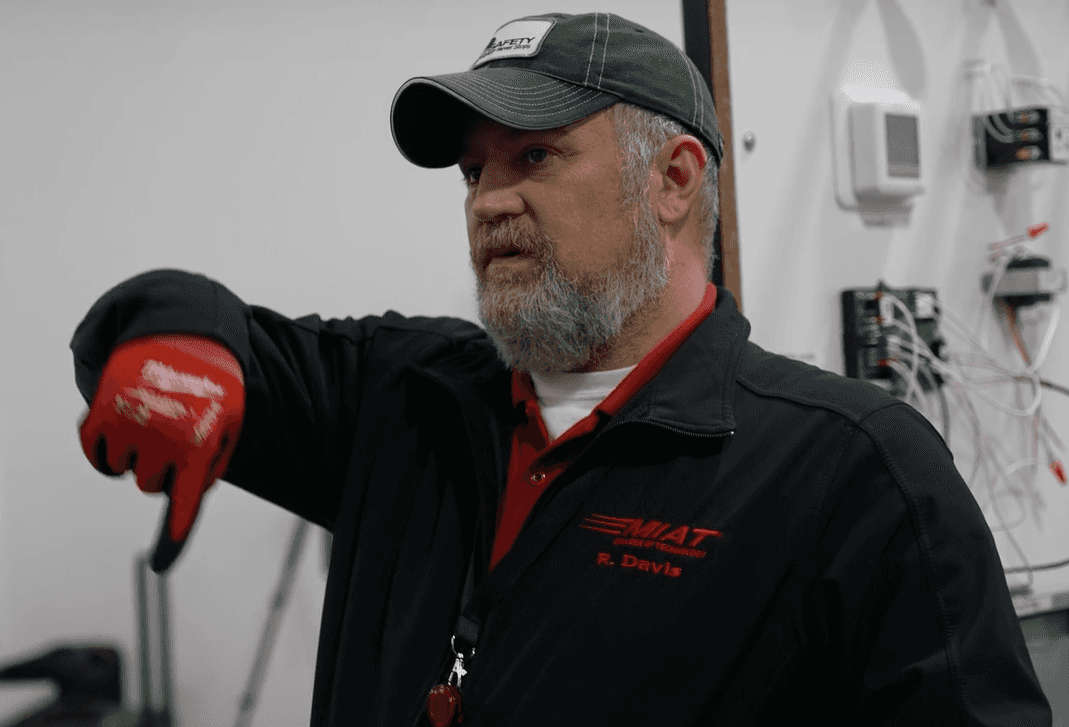Bringing Real-World Experience to the HVACR Classroom: Reggie Davis
"That’s what I would tell somebody is if you’re looking for something where you really don’t have to worry about where the next job’s coming from, HVAC is a great opportunity for you."
Heating, Ventilation, Air Conditioning and Refrigeration (HVACR), or HVAC as it's commonly known, is a trade that's useful to all climates throughout the country. At UTI, we offer an in-depth, nine-month program that lays the foundation for pursuing a career in this trade.1
From Paramedic to Repairing Cooling Systems: A Personal Journey
Before becoming an HVAC instructor, Reggie Davis spent 20 years as a firefighter paramedic. In search of a change to another career that he felt would always be in demand, he determined HVAC was for him.
“I actually came here to school and toured the campus, toured the facility and fell in love with HVAC,” Reggie tells us.
After graduating and spending some time working in the field, Reggie found himself back in the classroom–this time, as an instructor.
Real-World Knowledge: The UTI Difference in HVACR Training
“There's a lot of knowledge you can't get from books. It's the kind of stuff only someone with field experience can share.” Reggie explains.
When the opportunity arose to impart this knowledge as an instructor, Reggie didn't think twice. Part of his excitement in being an instructor here is our hands-on approach. It’s not just about theoretical learning; we focus on hands-on training. We even have relationships with industry leaders to ensure our students are receiving industry-mirrored training.
“It’s a big belief for us that you need to see the equipment in operation, you need to be able to hear what the equipment sounds like when it’s running perfectly and when it’s not running perfectly,” Reggie explains.
Being with the students for months at a time, it’s hard not to start to root for their success, as Reggie tells us. Our instructors care deeply for our students and are often in contact with them after training, offering tips for interviews and whatever other insight they can provide from having worked in the field themselves.
“The most rewarding part about being an instructor to me is the guys who come back that you didn’t think you were going to see them again,” says Reggie. “They come back and they tell you their success story. They come back and they tell you, ‘I got that job I really wanted.’”
As a former student himself, Reggie understands student’s unique challenges and tries to guide them through stressful times.
“I can relate to how they feel because I’ve been in their shoes,” says Reggie. “I think that’s the most important aspect I bring, that real-world, that real life experience.”
Real-World Advice From a Real-World Instructor
As Reggie explains, students can pursue careers in a few fields with HVACR, including residential and commercial. To anyone considering HVACR, Reggie has a few tips: Be prepared for hard work and do your homework. Second: Find a program that gives you a solid foundation.
“My favorite part [of HVACR] is that sense of pride that I went in, I figured out what was wrong with it and I fixed it,” says Reggie. “My advice to somebody getting into this career is do your homework.” In addition, he advises them to “find a program that’s going to give you the foundation you need to be successful.”

